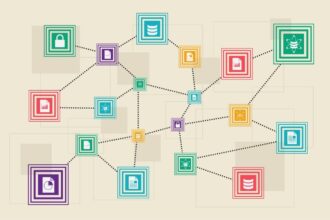 Search the hashtag #bigdata on Twitter. Blogs, industry resources, newspapers, magazines, and even memes are promoting a series of lofty tweets praising the value of big data and the insights it generates automatically. The presumption, of course, is that these insights are both valuable and scalable. In other words, they don’t require human intervention.
Search the hashtag #bigdata on Twitter. Blogs, industry resources, newspapers, magazines, and even memes are promoting a series of lofty tweets praising the value of big data and the insights it generates automatically. The presumption, of course, is that these insights are both valuable and scalable. In other words, they don’t require human intervention.
 Search the hashtag #bigdata on Twitter. Blogs, industry resources, newspapers, magazines, and even memes are promoting a series of lofty tweets praising the value of big data and the insights it generates automatically. The presumption, of course, is that these insights are both valuable and scalable. In other words, they don’t require human intervention. But this isn’t true – for three reasons.
Search the hashtag #bigdata on Twitter. Blogs, industry resources, newspapers, magazines, and even memes are promoting a series of lofty tweets praising the value of big data and the insights it generates automatically. The presumption, of course, is that these insights are both valuable and scalable. In other words, they don’t require human intervention. But this isn’t true – for three reasons.
Services Account for 40% of Big Data Spend
First, companies are already paying for humans. In 2013, businesses spent 40% of their big data related spending on services – not software or hardware. A bulk of these services went to administrative functions, installation fees and ongoing consultations.
Big Data Isn’t Actionable on Its Own
Second, humans need to ask questions of big data, or else it is just numbers put into a pretty platform. There are a number of companies such as Palantir and Ayasdi that surface insights via advanced visualizations, but these tend to be limited in their specificity. They are far better at providing high-level insights like proving that basketball has 13 true positions, not 5. Other technologies provide depth and the ability for humans to inquire. They include natural language search, organizational and filter-based tools and graphical representations of data.
For example, a user might want to know the profile of users from Texas who purchased VIP tickets, checked into Wi-Fi at the stadium, watched instant replay and live-tweeted a particular sporting event. The reason, unknown to big data, might be that the sponsor of the VIP section would like to send a Thank You email to this fan, which includes a video clip from the game and encourages her to share. Humans are better than computers at asking these types of questions, and then providing for the algorithm to put action to those question. Big data, unlike humans, only has the ability to query across the technology stack – analytics data, ticketing data, in-stadium Wi-Fi data, and mobile-app data – to paint a picture of these individuals.
Big Data is Birthed by Humans
Lastly, the results are human. The purpose of big data is to uncover something people would not have discovered by looking at correlations on line-graphs. It can show trends over time, aggregate information from various sensors embedded in hardware, and, of course, predict how groups of people will behave when presented with specific choices. The results are becoming so beneficial that large companies are no longer the only ones using big data to enhance their business operations – small businesses are too.
One of the ways big data improves small businesses in a very human way is that it makes inventory control more efficient. Brian Janezvic, a car-wash owner in Tuscon, AZ noticed that he had advanced automation machinery that determined how much of a mix to use when a car entered a car-wash station, but he was still taking inventory by hand. With the help of FileMaker Pro, he installed a series of sensors on all barrels of car-wash chemicals so he could monitor usage on a car-by-car basis. This ensures quality, consistency, and best of all, exports PDFs directly to the chemical supplier.
Other businesses are using big data in human ways too. Desk.com helps small businesses address customer concerns and provides analytics around how many emails per week are delivered, average response time and concerns addressed per employee. A local restaurant in Boston analyzed its data to learn that one of its servers consistently upsold a $5 brunch item. The manager noticed and asked him to train others to do the same on the weekends.
Big data won’t go away anytime soon, and neither will humans. In the end, it is humans who need to set up data collection and visualization systems, ask questions of the data, and take meaningful action on that information. Your big data platform is just a tool. Your in-house data literacy teams, AKA your employees, are the real decoders of big data profitability.








